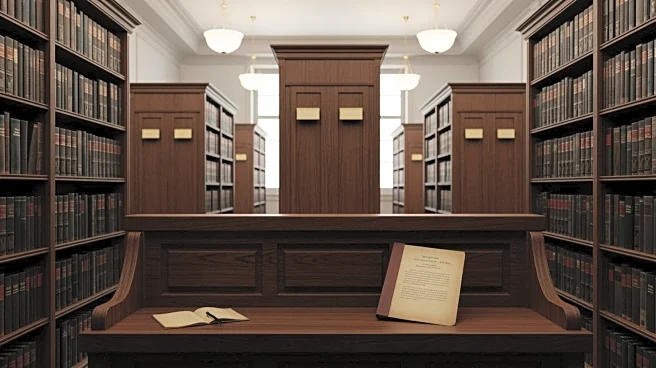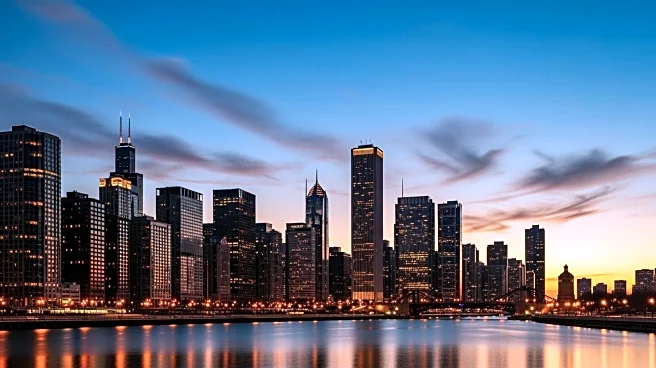What's Happening?
British political commentator Sami Hamdi has announced his consideration of legal action against U.S. authorities following his detention in an immigration center. Hamdi, who recently returned to the U.K.,
claims his detention was due to his views on Gaza and Israel. He was arrested by Immigration and Customs Enforcement (ICE) after speaking at a Council on American-Islamic Relations event in Sacramento, California. The U.S. Department of Homeland Security stated that Hamdi's visa was revoked due to accusations of supporting Hamas-led attacks on Israel. Hamdi refutes these claims, asserting his comments were meant to highlight the oppression faced by Palestinians. He maintains that his actions were legal and within the bounds of his visa.
Why It's Important?
This incident underscores ongoing tensions surrounding U.S. immigration policies and freedom of speech, particularly in relation to foreign nationals. Hamdi's case highlights the broader efforts by the Trump administration to expel individuals perceived as supporting unrest or protests against Israel. Civil rights groups have criticized these actions, arguing they infringe on constitutional protections of free speech. The outcome of Hamdi's potential legal action could set a precedent for similar cases, impacting U.S. immigration enforcement and diplomatic relations.
What's Next?
Hamdi is currently in discussions with his legal team regarding the possibility of suing U.S. authorities. He has expressed hesitation due to the support he received from 'cool heads' within the U.S. State Department and federal courts. The decision to pursue legal action will likely depend on further consultations and assessments of the potential impact on his future interactions with U.S. immigration policies.
Beyond the Headlines
The case raises questions about the balance between national security and individual rights, particularly for foreign nationals in the U.S. It also highlights the role of advocacy and public discourse in shaping immigration policies and international relations. The legal and ethical dimensions of Hamdi's detention could influence future policy debates and civil rights advocacy.








